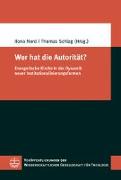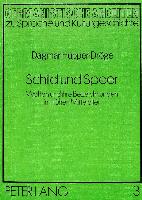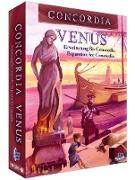Wer hat die Autorität?
BücherAngebote / Angebote:
Angesichts der medial dynamisierten bzw. oft auch inszenierten Um- und Abbrüche klassischer Institutionenautorität fragt sich, welche Wirkungen diese Wandlungsprozesse für die Institution Kirche, ihre Deutungsmacht und Praxis mit sich bringen. Im interdisziplinären Gespräch von Praktischer Theologie mit Kommunikations- und Medienwissenschaft, Politik- und Rechtswissenschaft, Religionssoziologie sowie Publizistik und Rhetorik wird den aktuellen Theorieentwicklungen des Institutionenverständnisses sowie den damit verbundenen Wandlungen der Autoritätsansprüche und Artikulationsdynamiken nachgegangen. Aus Sicht der Praktischen Theologie, Kirchenleitung und evangelischen Publizistik wird erörtert, welche Aufgaben und Autoritätszumutungen der Kirche als Institution der Freiheit angesichts dieser Wandlungsprozesse künftig theologisch begründet zugeschrieben werden können , und wie sie nach innen und außen zu kommunizieren sind.Mit Beiträgen von Christian Albrecht, Ralph Charbonnier, Ruth Conrad, Michael Domsgen, Horst Dreier, Christian Engels, Renate Fischer, Volker Friedrich, Johanna Haberer, Hanna Jacobs, Otfried Jarren, Jürgen Kaube, Sonja Keller, Hans-Joachim Lauth, Kristin Merle, Ilona Nord, Gert Pickel, Marcell Saß, Thomas Schlag und Thomas Zeilinger.[Who has Authority? Interdisciplinary Approaches to the Protestant Church in the Dynamics of New Forms of Institutionalization]In view of the upheavals and breakups of classical institutional authority promoted and even staged by the media, the question arises concerning the effects these processes of change entail for the institution of the church, its power of interpretation and its practice. In an interdisciplinary discussion of practical theology together with communication and media studies, political science and jurisprudence, sociology of religion as well as journalism and rhetoric, the book examines current theoretical developments in understanding institutions as well as the associated changes in claims to authority and dynamics of articulation. From the point of view of practical theology, church leadership and Protestant media communication, the book discusses the question concerning which tasks and presumptions of authority can be ascribed in the future to the church as an institution of freedom and theologically justified in view of these processes of change , and how they are to be communicated internally and externally.
Folgt in ca. 2-3 Arbeitstagen




